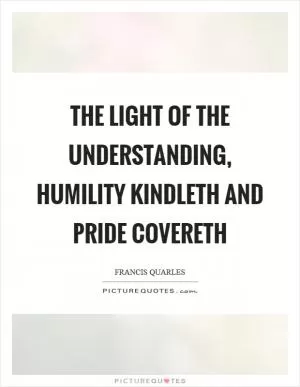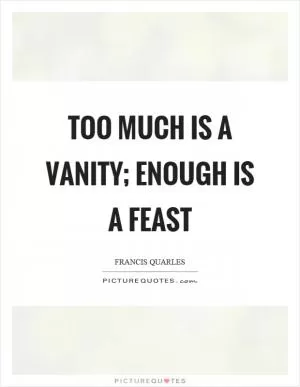Every man's vanity ought to be his greatest shame; and every man's folly ought to be his greatest secret

Every man's vanity ought to be his greatest shame; and every man's folly ought to be his greatest secret
Francis Quarles was a 17th-century English poet known for his religious and moralistic works. In his writing, Quarles often explored themes of vanity, folly, and the importance of humility. One of his most famous quotes, “Every man's vanity ought to be his greatest shame; and every man's folly ought to be his greatest secret,” encapsulates his belief in the importance of self-awareness and self-improvement.Quarles believed that vanity, or excessive pride in oneself, was a dangerous trait that could lead to downfall and ruin. He saw vanity as a form of arrogance that blinded individuals to their own faults and weaknesses. In his view, true humility required acknowledging and confronting one's own vanity, rather than indulging in it. By recognizing and overcoming their vanity, individuals could cultivate a sense of humility that would lead to personal growth and moral development.
Similarly, Quarles believed that folly, or foolishness, was a trait that should be kept hidden from others. He saw folly as a weakness that could be exploited by others and lead to embarrassment and shame. In Quarles' view, it was important for individuals to recognize their own folly and work to overcome it in private, rather than allowing it to become public knowledge.
Quarles' emphasis on humility and self-awareness reflects his Christian beliefs and his commitment to moral living. He believed that true virtue required individuals to constantly examine themselves and strive for self-improvement. By acknowledging their own faults and weaknesses, individuals could work towards becoming better people and living more fulfilling lives.












 Friendship Quotes
Friendship Quotes Love Quotes
Love Quotes Life Quotes
Life Quotes Funny Quotes
Funny Quotes Motivational Quotes
Motivational Quotes Inspirational Quotes
Inspirational Quotes